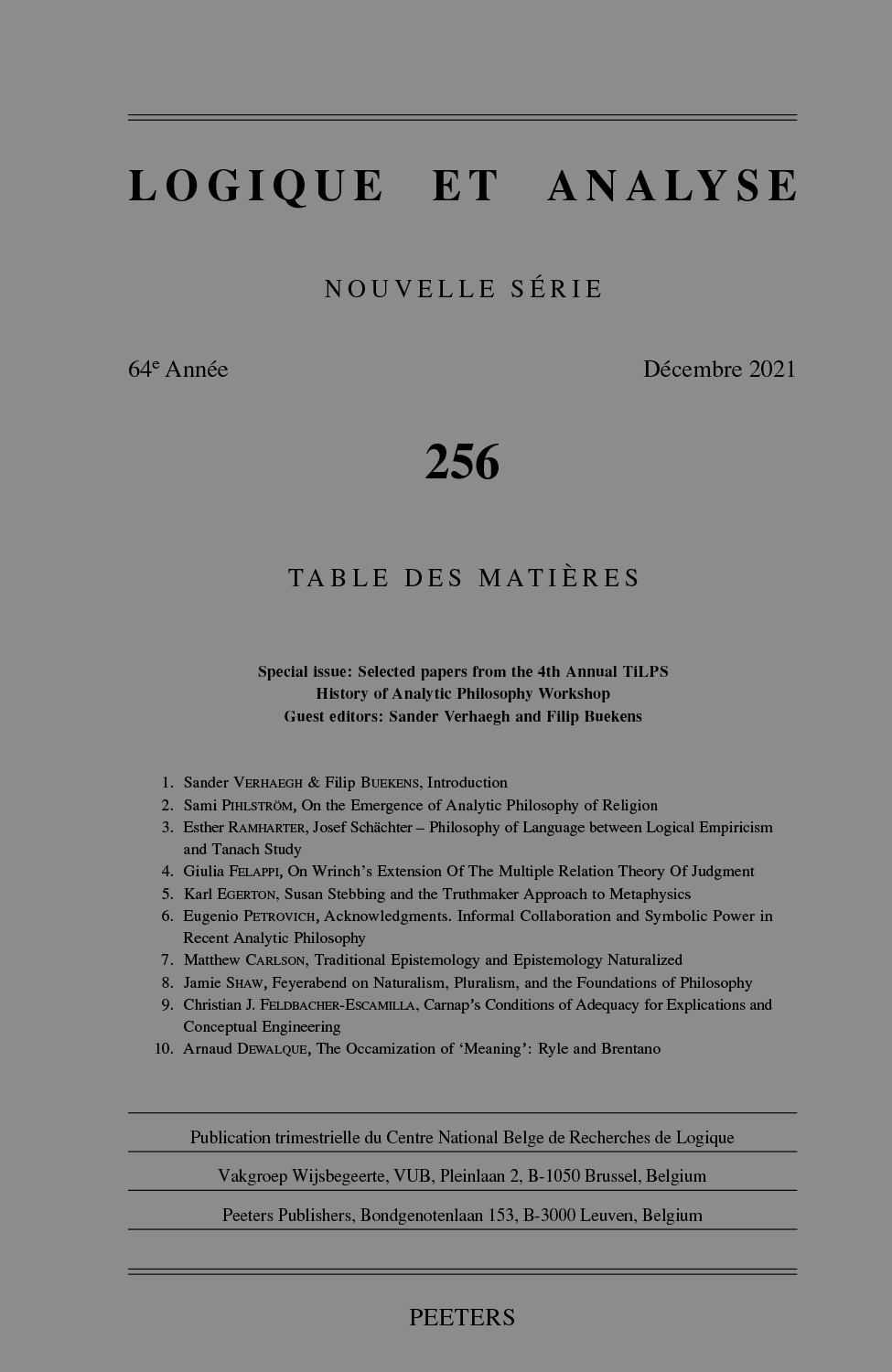 previous article in this issue previous article in this issue | next article in this issue  |

Preview first page |
Document Details : Title: Necessity, Theism, and Evidence Author(s): ALMEIDA, Michael Journal: Logique et Analyse Volume: 259 Date: 2022 Pages: 287-307 DOI: 10.2143/LEA.259.0.3291807 Abstract : The minimal God exemplifies essential omnipotence, omniscience, and moral perfection, but none of the other properties of the traditional God. I examine the metaphysical and epistemological consequences of the minimal God in augmented S5, S4, and Kϱσ. The epistemological consequences in S5 include the impossibility of agnosticism — it is impossible that P(□FG | E) = P(~□FG | E). Indeed, even weaker forms of agnosticism are impossible — it is impossible that P(□FG | E) = n, n(0 < n < 1). The metaphysical consequences include the impossibility that God — or any other object — might acquire, lose, or exchange an essential property. It is impossible, for instance, that an essentially divine being might become essentially human. The metaphysical and epistemological consequences for the minimal God in S4 are equally untenable. I show that we can avoid all of these unwelcome epistemological consequences for the minimal God in Kϱσ. But Kϱσ has some extraordinary metaphysical consequences for the minimal God. All of the problems for the minimal God generalize to the maximal God. |
|


